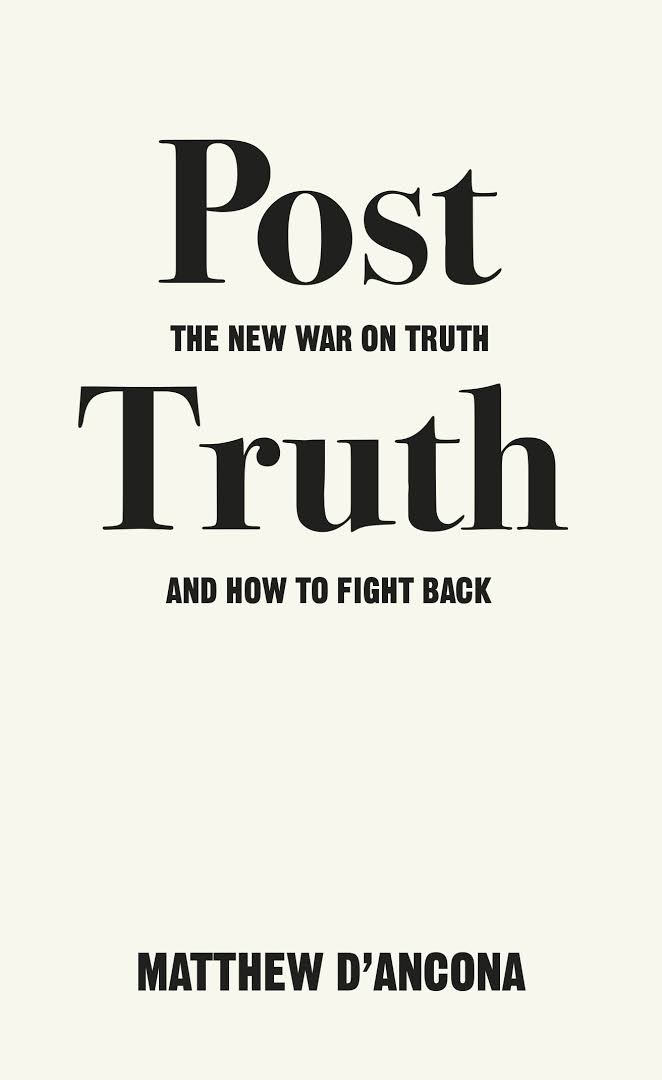US Election
Immanuel Kant Against Elitism
The post-truth era is surely a reaction against elitism and supposed experts.

Now a year has passed since Kelly Anne Conway coined the term ‘alternative facts,’ everyone is familiar with the ‘post-truth era.’ But pinning down exactly what this means is difficult. There is consensus that facts (particularly statistics) now have less influence on public debates. Most agree that social media is a key factor. Everyone accepts that fake news is real and litters the internet, though the question of who the litterbugs are is highly contentious. It has recently been argued that the supposed epistemic crisis is of such severity that even if it is proved that Russia used fake news to get Donald Trump into the White House, it might not make any difference. We are now so far beyond truth that even incontrovertible evidence has lost its power.
Most of those grieving for the pre-2016 era claim that post-truth means emotive reactions supplanting rational argumentation. The Oxford definition points to “circumstances in which objective facts are less influential in shaping public opinion than appeals to emotion.” Helen Pluckrose, the co-author of ‘A Manifesto Against the Enemies of Modernity,’ says we must “reverse the trend of the post-truth ethos – make appeals to emotion worthy of no respect at all and evidence and reasoned argument everything.” The word “reverse” is telling. Pluckrose wants to revert back to the values of Enlightenment modernity. She sees onslaughts against this coming from both the “postmodern Left” and a “premodern Right,” the latter of which she associates with creationism and jihadism. This connection of right-wing populism and premodernity suggests elitism; that backward people are being led astray, that they are less well-developed intellectually and less mature. The Enlightenment has long been considered the ‘coming of age’ of Western civilisation,1 so calling people ‘premodern’ implies they are childish or underdeveloped.

Matthew d’Ancona’s Post Truth: The New War on Truth and How to Fight Back is similarly restorationist. While d’Ancona does explicitly argue that we cannot go back – that we can’t switch off the internet, for example – he still wants social media to have the sort of quality control once provided by print media; he wants to revert to the pre-digital status quo. The overall impression is thus backward-looking.
He asks if we are “content for the central value of the Enlightenment” to be “trashed by charlatans,” and laments our betrayal of “the Scientific Revolution and the Enlightenment,” when our priorities were “rationality” and “truth.” He also cites the paradigmatic Enlightenment philosopher Immanuel Kant, claiming Kant’s “proposed motto for the Age of Reason (‘Dare to Know’) is being supplanted by ‘Dare not to.’” Again, post-truth means letting emotion usurp rationality: “truth out, emotion in.” Now “all that matters is that stories feel true,” for post truth is “an emotional phenomenon.”
D’Ancona’s diagnosis also feels elitist. He says Trump and Brexit voters succumbed to the triumph of the “simple” over the “complex.” Political disagreement is couched in language of maturity vs immaturity, talking of the “infantilisation of the public” and urging journalists to treat people as if they were mature adults. He says this was sorely lacking when the Brexiteers urged UK voters to “Take Back Control,” just like creationists reclaim “velociraptors for Christianity.” His proposed solutions are patronising. He borrows from the branding expert Jonah Sacks to argue that anti-Trump and anti-Brexit counter-narratives should use “empowerment marketing” techniques to lead voters into “growth and maturity.” He thinks the ‘Nudge’ school of behaviourial economics could “steer citizens” away from “misinformation” like parents steer toddlers away from an open fire.
This response to post-truth seems to employ just the sort of emotionally manipulative strategies which are supposed to be at issue with post-truth itself. The difference is that d’Ancona wants to employ these strategies to advance truth and not falsehood – but “truth” here means his particular political views. He calls on like-minded pundits to “wrap facts in stories that speak to ordinary human concerns.” All the commentariat need do, it seems, is lower themselves to understand the minds of ‘ordinary’ mortals.
The post-truth era is surely a reaction against elitism, and against supposed experts. It will not help to be yet more elitist and to forward even more strategic tactics for manipulating public opinion. Borrowing techniques from branding experts to ‘nudge’ or ‘encourage’ so-called ordinary people will hardly undo what Fareed Zakaria calls a “crisis of legitimacy” in established authority.
It is more worthwhile to study the presuppositions of this elitism itself. The Enlightenment legacy is crucial here. Recent events are often presented as forfeiting the hard-won gains of the Age of Reason, as atavistic retreats to some underdeveloped stage of evolution. But this immediately presupposes that counter-narratives are more well developed, more mature, more sophisticated, and, in a word, less stupid. The same is true as regards the emotions. If one side of political disagreement is coached in terms of emotions run riot, the presumption must be that the other side have more self-control, that they have decorum, that they are, again, more mature.

But is the Enlightenment really about rationality opposed to emotion? Let’s follow d’Ancona’s lead and turn to Kant, the prime exemplar of Enlightenment philosophy. Kant’s Critique of Pure Reason permanently altered the way philosophers could argue for such central features of premodern thinking as the immortal soul and the existence of God. But this is not to say those who resisted Kant were just emotionally attached to outdated things.
For Kant, the issue with premodernity is not that reason had too little authority, but that it had precisely too much, hence reason’s need for his ‘critique.’ When he alludes to why premodern argumentation is still seductive for his opponents, the problem is not to do with emotion. He criticises those holding fast to premodern convictions (so called rational ‘dogmatists’), as guilty of pride: having an arrogant faith in unbridled reason. But is pride an emotion, as such? We can ‘feel proud,’ certainly, but in the philosophical tradition pride is more than feeling self-satisfied. It is the manifestation, not of emotion, but of misdirected desire. Pride is ultimately the result of human desire for prowess, importance, and power, and these desires, for Kant, were to blame for the misdirection of rational argumentation by his critics.
The distinction between emotion and desire is crucial for understanding Kant’s Enlightenment philosophy. He considers that the emotive faculty merely reacts to what we experience. A painting can lift our spirits, an unhappy circumstance leave us crestfallen, a hearty meal make us feel vibrant and satisfied.
Desire, however, does not react, it motivates. Desire is not a kneejerk response to circumstances, but something that causes us to act. If we desire to be successful, we put in long hours at the office. If we desire an ordered environment, we tidy up. As motivating action, desire should be the focus for approaching the post-truth era. The political is the sphere of collective action, the sphere of group striving, the sphere of humanity’s desires.
Today’s usage of the word desire can include completely unrealistic wants. I might desire to win the lottery, but there’s no action that will necessarily fulfil it. But with Kant’s use of the word, desires are always motivations for things which at least seem reasonably attainable. He calls unreasonable and unrealistic desires “wishes,” and these are just idle fantasies, not genuine grounds for action. Desire is therefore not at all irrational. Our actions exhibit purposes, or rationales.
Evaluating the rationales by which we act, brings us to ethics, to the question of what makes actions good or bad. Kant is very much a philosopher of the Age of Reason in that he argues that good desire is rational desire. But it is crucial to bear in mind the use of reason in desire, what he calls “practical reason,” is not the same use of reason in intellectual activity, or cognitive reason. Kant considers effective cognising (knowing intellectually) and effective desiring (acting well) to involve two different uses of reason. Neither is more rational than the other, neither more reasonable. They are just different.
There are many differences between these two. Cognition seeks to know whether things are true. It asks what the world is like, or whether God exists, etc. Desiring is concerned with what makes something good. We choose what seems right. Humans do act irrationally and wrongly, of course, but Kant considers this to happen when passionate impulses get the better of us. We act pridefully, for example, because we want to secure our own standing against others, and this occurs when natural human impulses (for esteem or recognition) overstep the mark. The distinction between cognising and desiring shows that approaching the Enlightenment in terms of reason triumphing over emotion is wrong, at least for Kant. But could we not argue that people are being misled in the ‘post-truth era’ because their passions are overruling their ‘better’ desires? This however threatens to lapse into precisely the sort of elitism we want to avoid.
It would not necessarily be wrong to interpret ‘post-truth’ as passionate impulses supplanting a better (more rational) exercise of our desiring. But if we draw further on Kant it becomes clear that this would not be as arrogantly elitist as it sounds. For Kant, cognitive reason (intellectual knowing) uses rationality in a way that requires education to function at its best. Learning about things like science or philosophy renders cognitive reason far more reliable. A biologist thus has a better understanding of the truth of how the human body works than I, as does a physicist regarding outer space, like a scholar of Elizabethan literature has a truer sense of what Hamlet is all about.
But desiring is very different. Discerning what is good and seeking to attain it is, for Kant, not helped by education or speculative thinking, it is not a matter of intellectual sophistication, it is no more a specialised attribute of the philosopher or scientist than of the factory worker, barista, or cleaner. People can work very hard to master mathematical axioms or ancient languages, but the question of why some people and groups make good choices is far more mysterious and inexplicable than intellectual sophistication. As Kant states, “even in the commonest mind, [practical] human reason can easily be brought to a high level of correctness and completeness in moral matters.” Cognitive reason (or reason in its ‘theoretical’ use) requires academic specialisation to achieve correctness and completeness, because it must deal with conflicting and contradicting information.2 Some consciousness of what constitutes good practical choices, however, is endowed upon all.
So the contrasting of emotion and reason by populism’s critics is not only a false reading of Enlightenment philosophy, it misses out a key bulwark against elitism in Kant’s own defence of how moral aptitude (good practical reasoning) is not intrinsically linked with intellectual sophistication.
This observation might enable us to interpret post-truth in a less elitist and snobbish way than most do, and be less likely to claim, like Fareed Zakaria, that people voted for Trump because “they have less education.” There is no doubt that erroneous news stories circulate, and that people are less trusting of authorised news sources regardless of the supposed reliability of their data. But the answer does not lie in assuming great masses of the electorate are childishly and emotionally reacting to not getting their own way. It might not be ‘ordinary’ people who have to change, but those who are struggling to interpret their actions, to understand their desires.
To safeguard the heritage of the Enlightenment and hold fast to Immanuel Kant, journalists will have to ‘dare to know’ what people are desiring, what is motivating the occasional assents to bogus claims or spurious statistics. They will need to accept that these desires cannot be explained away as emotional reflexes due to educational disparities and fewer qualifications. Commentators in the post-truth era will thus need the courage to accept that desires different to their own are not necessarily less sophisticated or less mature. In doing so, they’ll exercise some of the emotional maturity they deem so important for the post-truth world.
References:
1 Wilhelm Dilthey, Weltanschauung und Analyse des Menschen seit Renaissance und Reformation, (Göttingen: Vandenhoek & Ruprecht) 1964
2 Immanuel Kant, Groundwork for a Metaphysics of Morals, p. 4





